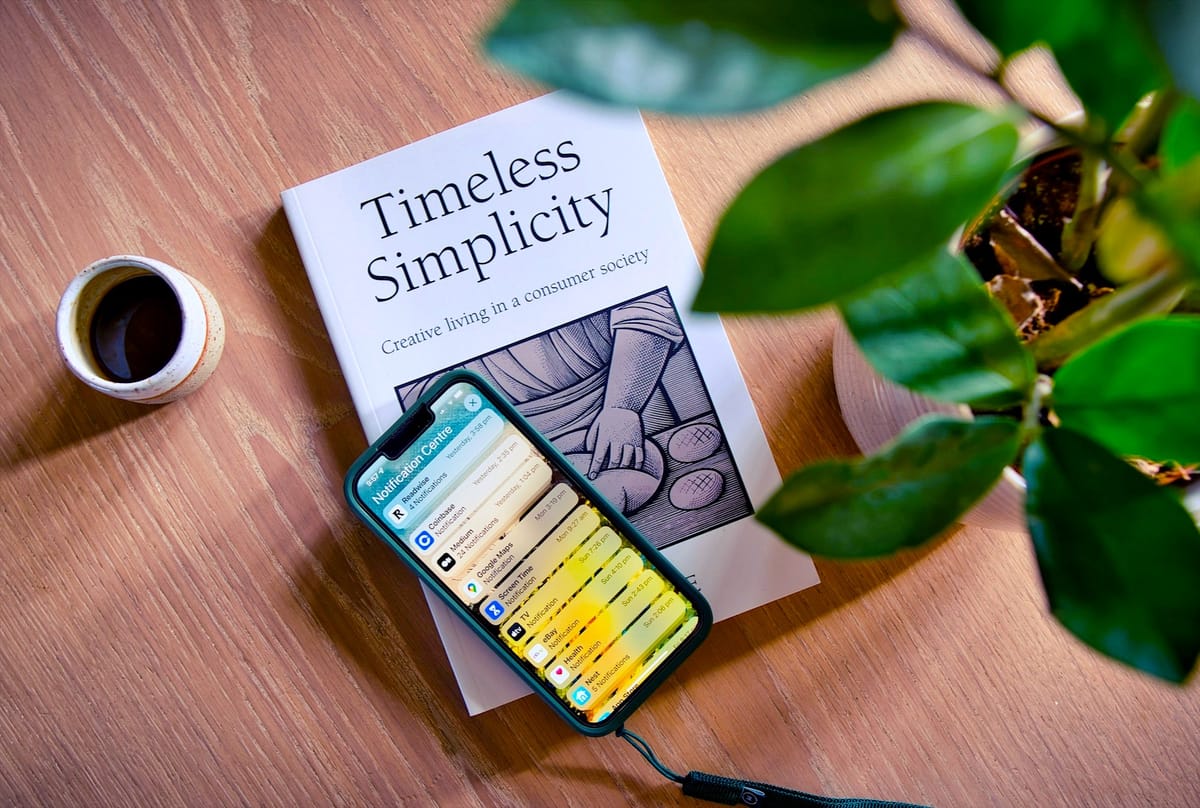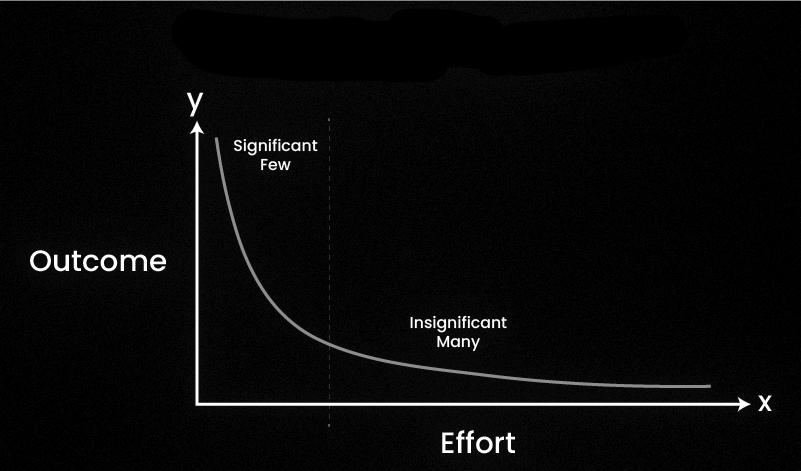3 things a day – make 2025 more impactful by doing less

We live in a world of information and opportunity abundance. That's nice but comes with unique challenges.
Throughout pivotal moments in socio-cultural evolution, humanity has consistently advanced its ability to pass knowledge to future generations. Milestones such as the development of language, the invention of writing, Gutenberg's printing press, and now the internet have enhanced our capacity to preserve and share information.
In the 19th century, scientists estimated that the knowledge of the entire human race doubles approximately every hundred years. According to more recent projections, the entire world's knowledge now doubles every four to eight years, and the trend is rising.
This is called the ratchet effect of socio-cultural evolution (dt. Wagenheber-Effekt). Due to technical advances, we experience an information explosion. With all this knowledge available, our opportunities expand too.
Attention is scarce
However, this predominantly describes an increase in information and opportunity quantity and not necessarily quality. To the individual, almost all of them are a distraction. As James Gleick puts it in his book The Information: A History, a Theory, a Flood:
“When information is cheap, attention becomes expensive.”
As a consequence of this information and opportunity abundance, we are inclined to do too much. We try to work more efficiently to work on more things. This is what a lot of productivity advice focuses on. That's stupid.
Pareto Distributions
Tasks are not created equal. Some are more impactful considering our personal goals than others. The Pareto principle suggests:
80% of consequences come from 20% of causes
The principle is named after the Italian polymath Vilfredo Pareto, who was fascinated by the observation that 80% of Italy at that time was owned by just 20% of its population. It turned out, this insight revealed a broader pattern—outcomes in many fields of interest follow such a Pareto distribution.

20% of tasks yield us 80% of progress. We want to focus on those 20% of tasks. You can only work so fast and for so long. The increase in productivity due to working faster or longer is limited. Much less limited is the impact we can have, focusing on the few things that are significant. The impact of prioritisation.
The Ivy Lee Method
Got it… prioritisation is important. Now let's talk about implementation. In 1918, Ivy Lee was consulted by Charles M. Schwab to help him improve the productivity of his steel production plants. Charles M. Schwab was president of the Bethlehem Steel Corporation and at that time the richest man in the world. He knew a few things about work.
Long story short, Ivy Lee met with each of the production plant executives and advised them to follow a simple routine:
- At the end of each day, list 6 impactful tasks. From No. 1 most impactful to No. 6 still impactful.
- On the following day, focus on the completion of that list. Work on one item at a time. Start with No. 1 and work your way down to the bottom.
- At the end of that day, reprioritise your list of 6 things. Then repeat the process.
According to history, it all worked out great, and Ivy Lee received a check equivalent of $400.000 today.
The idea of this approach is to intentionally choose a small number of things to work on. You select them based on the perceived impact they will have on your life, considering your personal goals. During the day, you focus on completing those 6 things before you worry about anything else.
My system for 2025
In the last articles, I talked about creating systems. They help us to automate working towards our personal goals. Automation is important. There is no way we will keep thinking about our goals 24/7 365 days a year. Here is my system for 2025. It's simple, consisting of 3 parts.
First: quarterly goals
I pick goals for the next 3 months instead of the whole year. 3 months are more predictable and the goals more adjustable. I write them down. I make sure they are in my control (input instead of outcome oriented). I track them (what gets measured gets managed). I revisit them every day.
These are some of my quarterly goals for Q1:
— Health —
- Average 2.800 caloric intake a day → tracked with a calorie tracker app (Fddb)
- 80% follow through on my training program → tracked inside an Excel sheet designated to the training-program
— Wealth —
- organise an internship
— Relationships —
- organise a weekly or bi-weekly social event
— Creation —
- post article 10 out of 12 Sundays
- read 10 books → tracked in Goodreads app
Second: habits
Things that involve consistent effort I try to cultivate as a habit. They are derived from my quarterly goals. I pick an input target. I pick a consistent time. I create myself an incentive to do them. I try to never miss them two days in a row.
My habits for Q1 are:
- read an hour a day
- track calories
- write just anything every day
- write down 3 impactful things to work on
Third: 3 impactful things
This is where Ivy Lee's Method comes into play. Currently, I am not managing a steel production plant. Thus, I just pick 3 instead of 6 things to do. Each morning I revisit my quarterly goals. With them in mind, I ask myself: “What are three things I can accomplish today that would make the day feel like a success, even if I did nothing else?”
For one day, they could look like this:
- Write article outline → article publishing goal
- Learn to do the monthly financial report (work related) → internship goal
- Prepare lecture 2 of “strategic and international management” → another goal concerning exam preparation
Since it's just three things, I can easily keep them top of mind. It forces me to be intentional about what I do. I also do things besides those 3. Like brushing my teeth. The point to be made here is, those 3 are my priorities for the day.
The system is stupid simple. Which is why I am confident that it will work. In addition to this daily practise, I revisit my quarterly goals on weekends. That's it.
I enjoy following such a systemized approach. In addition to the consistency such an approach provides, it helps me to feel oriented and decluttered.
If you take one thing from this article, play with the idea of focusing on just three things a day. Do you know someone who could benefit from this idea? Share the article with this person.
If you are not subscribed yet, do so to not miss out on new articles.
Until soon!